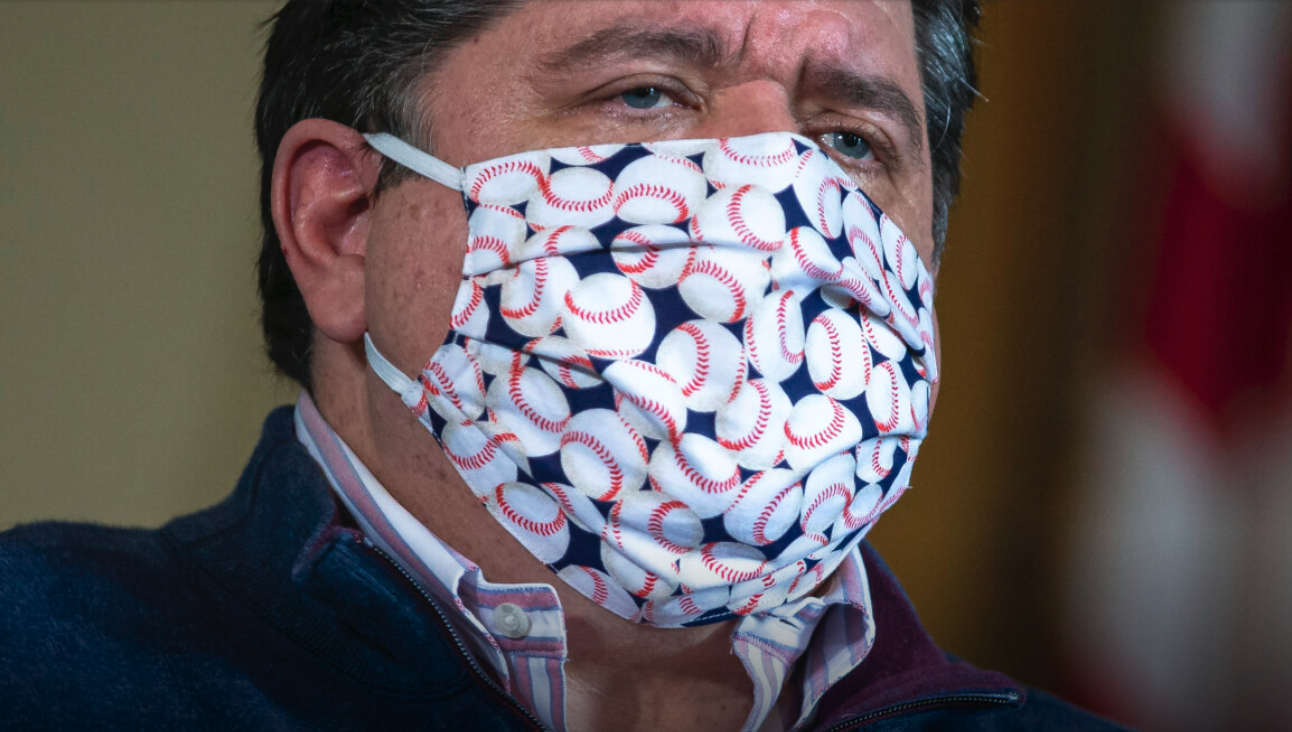After two years, it’s time to limit Pritzker’s emergency powers

March 12 marks the two-year anniversary of Gov. JB Pritzker’s first executive order citing emergency powers in response to the COVID-19 pandemic. Pritzker has since issued 112 orders and declared a statewide disaster 27 times to extend those powers.
Pritzker has been allowed to enact various policies without any input from the legislature. Those policies have included limiting the size of public gatherings, suspending enforcement of certain laws and agency operations, closing schools and certain businesses, ordering residents to stay at home, issuing mask mandates, and more recently, requiring vaccinations for most school employees, health care workers, and day care workers, among others.
The legislature has provided little to no oversight of Pritzker’s emergency powers. That’s because, unlike in other states, Illinois law does not give them such a role. In order to curb Pritzker’s emergency executive orders, lawmakers would need cooperation from the governor or a veto-proof majority.
That needs to change.
Pritzker should not be able to extend his 30-day disaster proclamations without the approval of both chambers of the General Assembly. Barring that, the General Assembly should have the power to terminate Pritzker’s emergency powers by a joint resolution passed by both chambers, as is the norm in most states in the country.
Executive branch emergency powers across the country
A similar story played out across the country in the early days of the pandemic. According to the Pew Charitable Trusts, governors declared a state of emergency in all 50 states following the outbreak of COVID-19. But as the pandemic progressed and legislatures got their bearings, some began to roll back emergency powers in response to executive overreach. In March 2021, Ohio passed a measure to establish legislative oversight of the executive branch’s use of emergency powers. And unlike Illinois, a majority of states already had checks on executive emergency power in place before the pandemic.
According to the National Conference of State Legislatures, 21 states empower their legislatures to end a state of emergency by joint resolution at any time. In Louisiana, the house or senate alone can end a state of emergency. Twelve states go farther: Alaska, Georgia, Kansas, Michigan, Montana, New Hampshire, Oklahoma, Pennsylvania, South Carolina, Utah, Washington and Wisconsin require the legislature to approve any extension of emergency declarations. Michigan recently repealed the statute authorizing emergency executive powers. Through an indirectly initiated state statute, Michigan voters were able to get enough signatures to send a repeal of the authorizing statute to the legislature. The legislature voted to accept the voter-initiated repeal on July 21, 2021. That repeal takes effect on March 30.
Illinois lacks statutory process for legislative involvement in states of emergency
Meanwhile, though the Illinois Emergency Management Agency Act limits Pritzker’s disaster proclamations to 30 days, he has been able to reissue new proclamations each time the previous ones expire. To date, Pritzker has issued 27 proclamations, preserving his emergency powers without input from the General Assembly. In that time, Pritzker issued 112 executive orders exercising those powers intended to circumvent the legislature during an emergency.
Pritzker’s executive orders have not gone unchallenged. The governor has facednumerous lawsuits since the start of the pandemic. Though most legal challenges failed to curtail his COVID-19 restrictions, a recent lawsuitwas successful in temporarily halting his school mask mandate and ultimately led to the end of the statewide student mask requirement.
In the early days of the pandemic, Pritzker’s use of executive emergency powers to deal with the virus was understandable. By their very nature, legislatures are deliberative bodies that tend to move slowly. Executives are given emergency powers precisely because they can act more quickly and decisively than the legislative branch.
But Illinois has lived under Pritzker’s emergency powers for two years, far past the time when the virus was a new and unexpected threat to public health. The General Assembly – a coequal branch of state government – has been uninvolved in determining the emergency status, and currently has no mechanism to say whether Illinois should continue to operate under emergency rules.
Illinois General Assembly should pass a law to check the governor’s power to maintain extended states of emergency
Pritzker should not be able to unilaterally extend his emergency powers, and certainly should not be able to do so indefinitely. What started as a necessary emergency response has become rule by executive order. After two years, Illinois’ pandemic response remains in the hands of one man. This is not the case in most states. Illinois should follow the lead of 34 other states and give the legislature the power to place limits on the duration of emergency executive powers.
The state’s emergency management act sets the duration of emergency powers at 30 days from the declaration of a disaster. If those emergency powers need to be extended, the governor should get the approval of a majority of lawmakers in each chamber of the Illinois General Assembly. At the least, the General Assembly should be given authority to end a state of emergency by passing a joint resolution of both chambers.
Emergency executive powers can be a necessary aspect of governing in times of crisis. But powers meant to deal with a disaster cannot be allowed to go on forever, especially not on the say-so of one man.
With two years of experience under these conditions, it is time for Illinois to check the governor’s power.
Miss Clipping Out Stories to Save for Later?
Click the Purchase Story button below to order a print of this story. We will print it for you on matte photo paper to keep forever.

